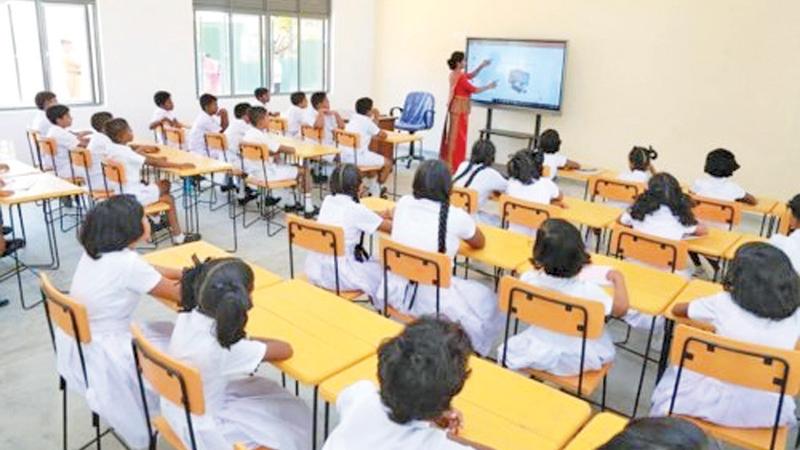
The recently held Presidential Election has been the only Presidential Election in Sri Lanka, at which the program of the candidate mattered, throwing partisan politics out of the window and raising hopes for an advanced country.
The country had been marooned in critical domains, such as education, economic development and civic-mindedness for well over half a century after independence due to the fact that mere politicking without initiatives had been the political zeitgeist.
While the weltanschauung of the people of many other countries has been evolving to aquire cosmic perspectives, preserving the indigenous ethos, Sri Lankans have been trammeled with internecine political struggles, stage-managed by political throwbacks.
Political platforms had been theatres of deception for politicians to hoodwink the gullible masses by promising the sun and the moon to grab their votes to get them elected.
They maintained poverty as a political instrument so that the poor could not afford a decent education to see through the veneer of sycophancy and made them dependent on politicians’ support for their sustenance by creating a vicious cycle of indebtedness. Talent was swept under the carpet, nurturing a fertile ground for sycophancy, making people dependent on their political masters.
At the last Presidential election campaign, Sri Lanka Podujana Peramuna candidate Gotabaya Rajapaksa laid down a solid program with a clear vision to pull the country out of the morass aggravated by the Yahapalanaya tragicomedy and the people had the sagacity to get hold of it.
Empty Rhetoric
The main opposition’s ill-suited program of sheer promises with empty rhetoric to deceive the masses and take the country on the rutted path of stagnation paled into insignificance vis-a-vis the Sri Lanka Podujana Peramuna’s vibrant initiative to address people’s mind rather than making political capital by appealing to their heart.
Under the murky waters of deceptive politics, something revolutionary has been happening: liberalization of education with people’s incresing awareness on the efficacy of better understanding.
Making the vernacular languages: Sinhala and Tamil, the medium of instruction and the free education system introduced by C. W. W. Kannangara were seminal in the liberalization of education though the former was not without fallouts as the earstwhile medium of instruction – English – which has become a global language, was omited in favour of the vernacular languages.
This facilitated the true sons of the soil to access education and higher education, opening the floodgates for an autochthonous educated class rooted in pan-Sri Lankan culture. The contribution of Colonnel Henri Steele Olcotte and the Theosophical Society founded by him laid a solid foundation in this regard.
The state education system created a civic minded, patriotic stratum in society. It is they who were moulded in the indigenous template that later joined the Sri Lanka administrative service, teacher service and other multitude of services and occupations in the interest of the country.
Education system
They, who became aware of the value of education delivered by the country’s education system moulded on indigenous ethos, realized the importance of preserving the education system evolved on the Sri Lankan culture and took steps to educate their children on the same mould, creating a generation of professionals with indigenous values.
Some of those who understood the inadequacies of the Sri Lankan education system and had sufficient means, sent their children abroad for higher education.
Nonetheless, extracting valid knowledge or knowledge produced on the scientific method had only qualified success with many Sri Lankan students opting for easy routes to be merely qualified, circumventing core subjects, such as Physics, Chemistry and Mathematics.
In this scenario, the Chinese example is worthy of emulation. China sends some of their best students abroad, especially to the best European and American universities to be educated in key subjects which enables them to understand how nature works to frame their models in terms of their understanding of the workings of nature so that there would be minimum negative effect from development.
The more refined one’s understanding is, the better the outcome of one’s action towards the environment and greater the world view.
When they are fully educated, they are required to return to the country and assist its forward march.
That is how China extracted modern knowledge and laid the foundation for a modern China which is extrapolated to become the largest economy within years.
However, with limited success of the education model framed on the book-learning methodology, the liberalization of education paved the way for the masses to have a decent education which in turn created an ambience for them to extricate themselves from political dependence.
The outcome of the presidential election demonstrates that the majority of Sri Lankans have learned to think without being biased towards a political party as they have elected a non-partisan meritocrat and technocrat to take the country forward.
The people seem to have learned to see through convoluted chicanary enacted by wooly-headed politicians to trap the masses in a time warp.
